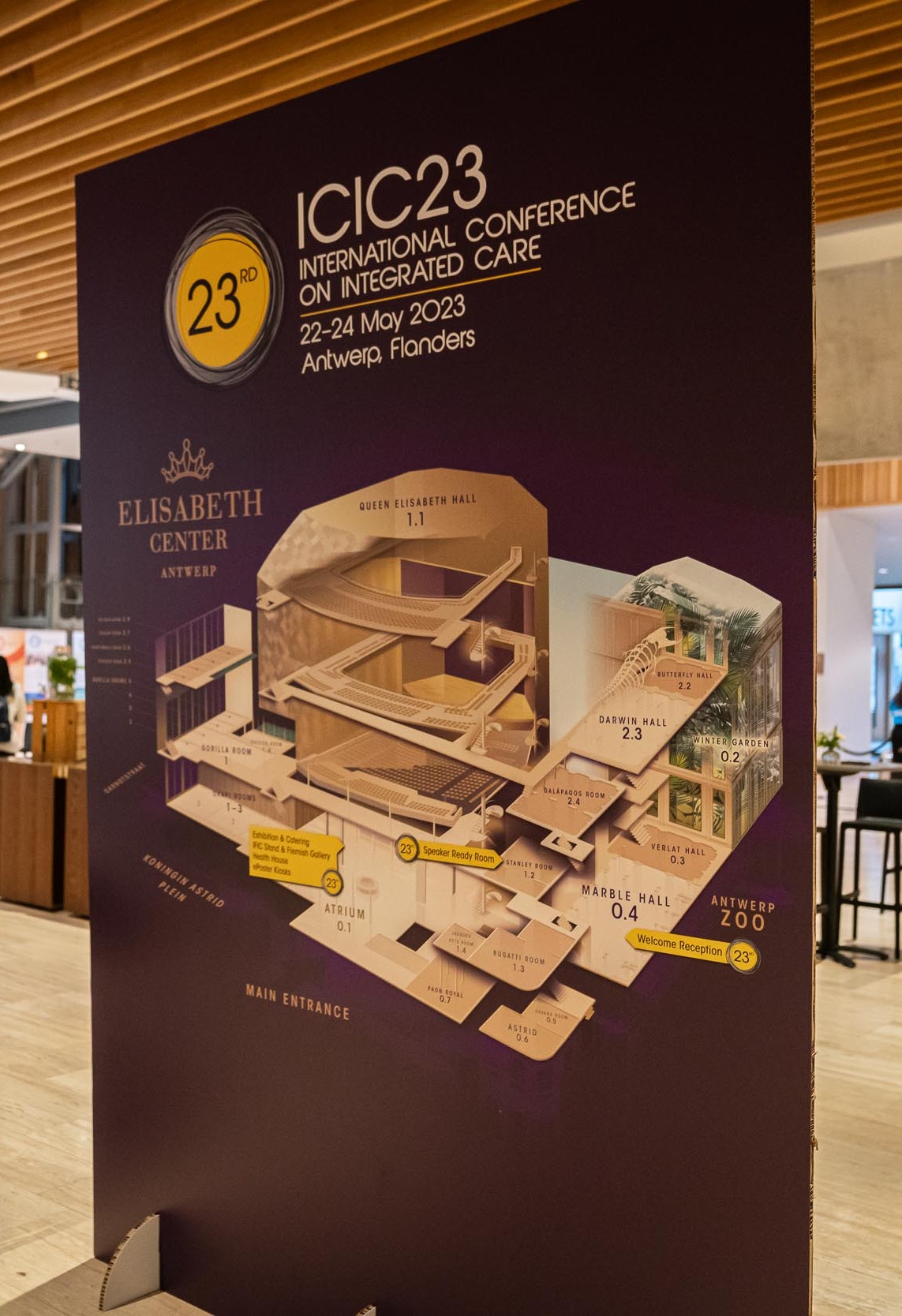Introduction
The International Foundation on Integrated Care (IFIC) has been organising the International Conference on Integrated Care (ICIC) for more than 20 years. In May 2023, this annual conference took place in Flanders. For this purpose, a collaboration agreement was concluded between IFIC and the Flemish Agency for Care and Health (now the Department of Care).
Strategic challenge
Flanders had a double goal in mind:
-
on the one hand, show the achievements of recent years in the field of integrated care to an international audience, and thus position Flanders as an innovative care region;
-
on the other hand, together with all participants, learning together with all participants from the experiences and knowledge of other regions/countries in the field of integrated care.
In order to maximise the success of the conference and to maximise its added value, a preparatory process of one year was carried out in Flanders. Möbius provided support in this regard.
Approach
The support provided by Möbius consisted of various phases / work packages:
Phase 1: Peeking at the (distant) neighbours
The starting point consisted of an evaluation of the previous year's edition of this conference (ICIC22) which took place in Odense (Denmark). A delegation from Flanders (from the Flemish Agency for Care and Health, VIVEL (the Flemish Institute for Primary Care) and a number of Flemish care councils) made a 360-degree evaluation on site under the supervision of and together with Möbius. For this purpose, coordination was done with this Flemish group before, during and after ICIC22, and a digital platform was used as a supporting tool during the conference. Other Flemish and other participants were also involved where possible.
In this way, insight was gained into strengths, points for attention, points for improvement ... in order to make the conference in 2023 in Flanders as strong as possible. This valuable information was compiled in an evaluation report and discussed with IFIC, and based on this, actions were defined for ICIC23.
Phase 2: Supporting the scientific process
Möbius supported the composition of the scientific committee by proposing members from Flanders/Belgium. A critical evaluation of the scientific process was also provided. For example, the templates to submit an 'abstract', the evaluation criteria etc. were evaluated and suggestions for improvement were formulated to allow IFIC to optimise the process for 2023 (and subsequent years).
There was also specific attention for broadening the conference towards a non-academic audience. The intention was to attract, in addition to academics/researchers, also more policymakers, people with practical experience, the education sector and people with a need for care and support, as well as informal caregivers, both as a participant and as a speaker.
Phase 3: Setting up and facilitating a participatory stakeholder process
The focus of the support was mainly on setting up and facilitating a participatory process with the most important stakeholders. In this context, all stakeholders were mapped and the most important stakeholders were invited to be part of the 'Engagement Task Force' for ICIC23. These were stakeholders who were able to make a relevant contribution themselves in the context of integrated care during the conference and/or with a large relevant support base.
Together with this group, which eventually numbered about 40 stakeholders, an engagement process was conducted that consisted of 6 work sessions (an alternation of digital and physical sessions, and of general sessions and sessions with a specific focus on the person with a care and support demand and the informal caregiver). This process was supported via a digital platform that was used as a common thread throughout this preparatory process.
The ultimate goal of this process was to get as many speakers and as many participants as possible from Flanders. In this context, actions were defined and rolled out with the Engagement Task Force and a great deal of communication was disseminated to the constituency/network of the representatives in this group (as well as via the webpage of the Agency for Care and Health itself).
Möbius, together with the Agency for Care and Health, also organised an information session for interested speakers in the autumn of 2022 and a webinar for all interested parties from Flanders shortly before the conference in May 2023 in order to prepare them as well as possible so that they could get the most out of the conference.
Phase 4: Facilitating networking via the Flemish Gallery at ICIC23
During the conference, specific activities were set up in the Flemish stand (the 'Flemish Gallery') to bring Flemish participants into contact with each other and other participants as much as possible. For example, a network bingo was organised, network tables with jars containing scraps of paper with specific questions about integrated care were provided, accessible games/competitions about cooperation and change (two key themes of the conference) were organised etc. This had to allow the participants to make contacts more easily and also to be stimulated around the dimensions of integrated care. The original approach generated a lot of interest and enthusiasm. A digital platform was also used during the conference to create a Flemish community to promote networking.
Phase 5: Providing aftercare
After the conference, Möbius was asked to provide support in organising and facilitating follow-up meetings following international contacts initiated at ICIC23, with the aim of further exchanging knowledge and experiences, exploring possible collaborations etc.
Results
Flanders can look back on a very successful international conference with a total of about 1.400 participants (including the online participants), including more than 500 participants from Flanders. This can serve as a springboard for further successful implementation of integrated care in Flanders (and beyond).














